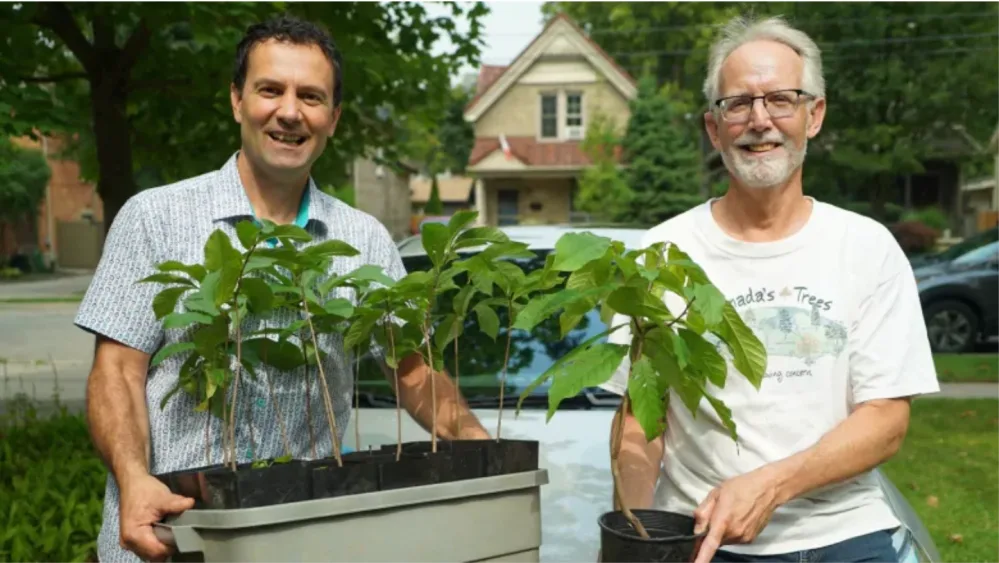
An extremely rare tree is returning to Ontario
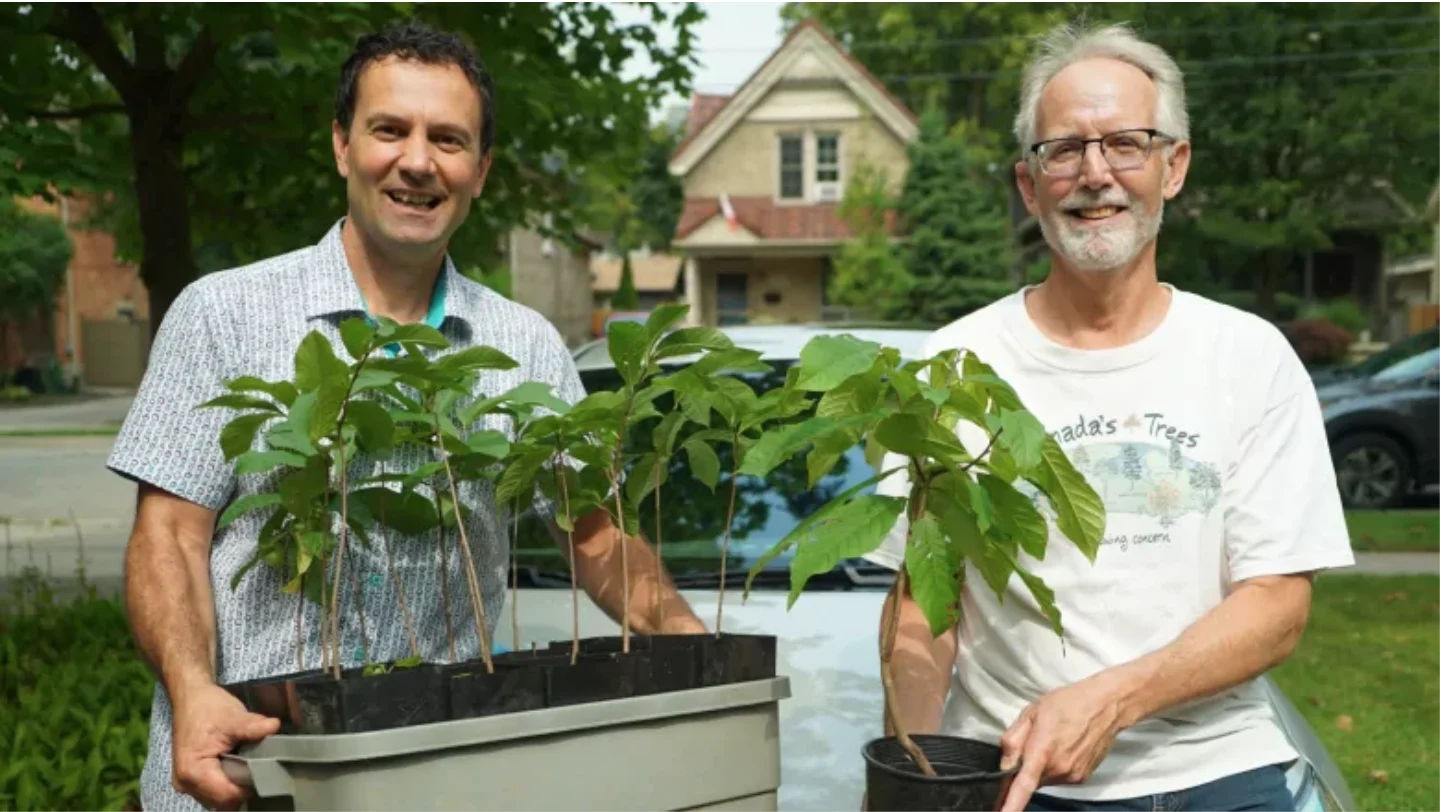
(Image: Ben Porchuk (left) and Steve O'Neil (right) are driving across Southern Ontario to deliver 100 pawpaw trees in a bid to help restore the species to its former glory. Courtesy: Colin Butler/CBC News)
As a forest restoration ecologist, Ben Porchuk walks the talk. His home garden is like a museum of rare and endangered Ontario plants.
He has flowers and trees of every size and description, from the ultra rare cucumber tree (one of the last 100 of its kind) to a chinquapin oak. Almost all of them are native to the Carolinian zone, a thin humid sliver of the province that stretches across Ontario's southernmost fringe.
Among some of his most prized species is the pawpaw – North America's largest native tree fruit.
"The taste is out of this world," Porchuk said. "It's like a banana, mango, custard combination."
RARE PAWPAW ONCE ABUNDANT IN ONTARIO
Porchuk works for Carolinian Canada, a charity dedicated to preserving, protecting and restoring Ontario's Carolinian forest.
Hundreds of years ago pawpaws grew in abundance in the Carolinian. Because of its rich taste, Indigenous people planted them near their communities and along many of their trade routes.
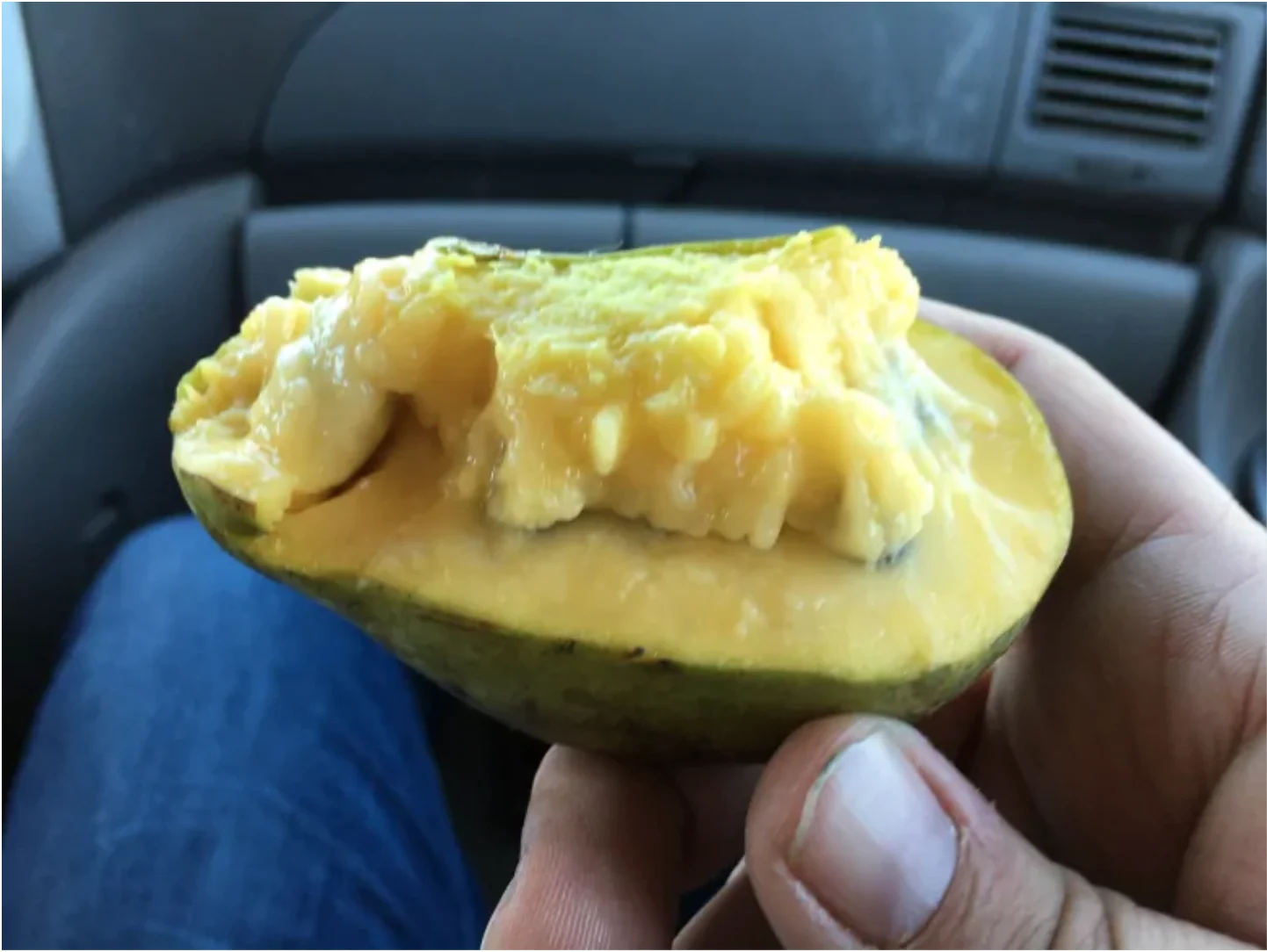
(Image: With a flavour reminiscent of banana and mango, the Ontario variety of a fully ripened pawpaw is tasty, sweet with a richness that gives it an almost ice cream-like texture. Courtesy: Colin Butler/CBC News)
Today, the tree only grows in about a dozen places and is one of the rarest species in Canada.
"They're extremely limited now and extremely rare," Porchuk said, noting today's population of the tree is less than half of a per cent of its size before Europeans arrived.
In fact, it was Europeans who nearly wiped them out. Porchuk said settlers torched the landscape, clearing out vast sections of rare Carolinan forest, whether they intended to farm the land or not.
"They wanted to change the climate to have it less humid and warmer and drier to have less mosquitoes," he said.
'IT'S CULTURAL REPAIR'
Today, the Carolinian zone, which includes Toronto, the GTA and southwestern Ontario, is one of the heavily populated areas of the country where 95 per cent of the land privately-owned.
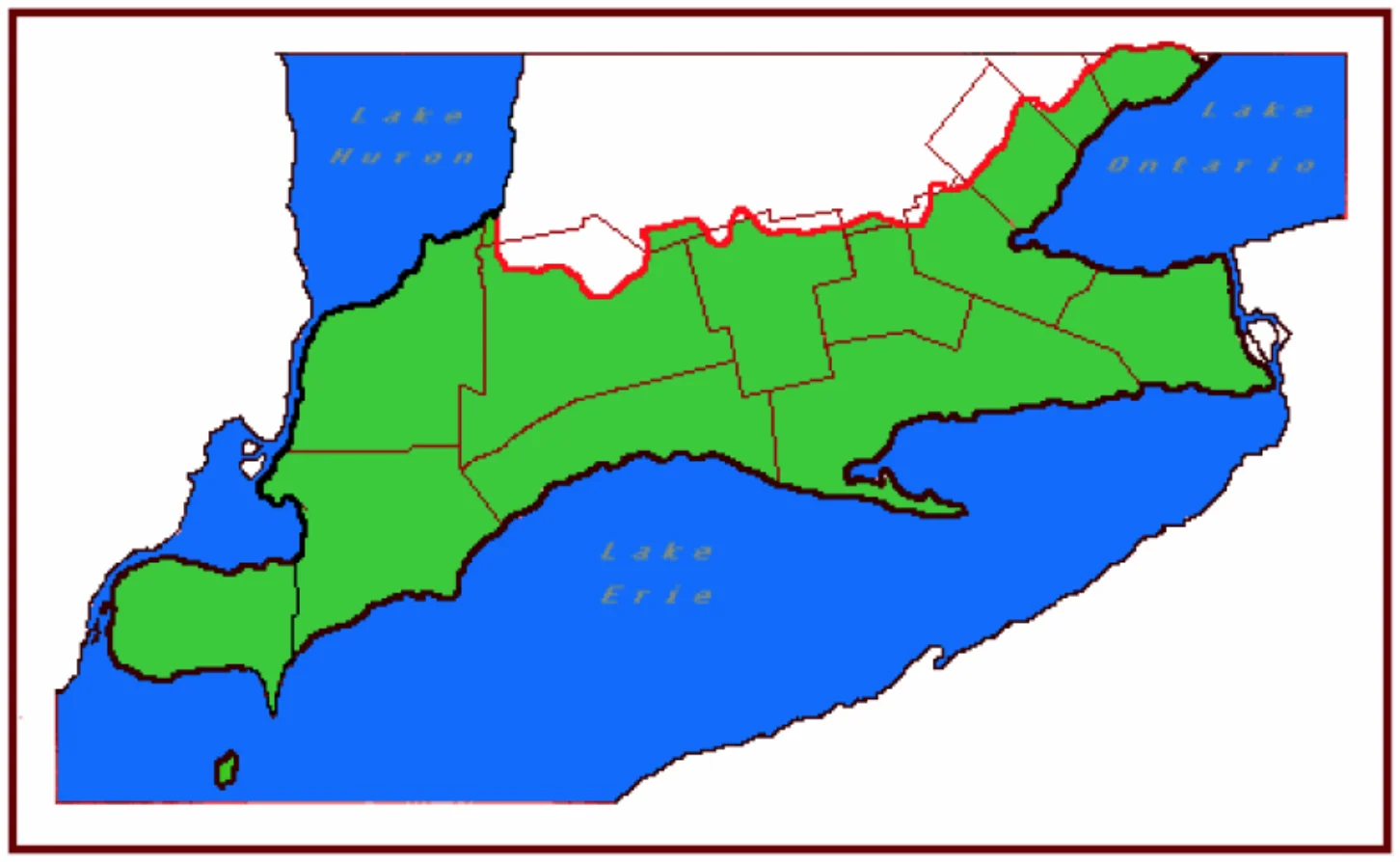
(Image: A map shows the Carolinian forest zone in green, a rare forest habitat that includes some of the most heavily urbanized areas in the country. Courtesy: Carolinian Canada)
"Bringing these species to urban areas is critical," Porchuk said. "Without these our ecosystem really struggles"
Porchuk said planting the trees in home gardens will help restore native plants, which will in turn attract native insects and promote native biodiversity in an area where often people don't appreciate the fact they live in one of the world's truly unique ecological zones.
"This is an opportunity to join people," he said. "This is an opportunity to connect the zone, which really doesn't consider itself a zone like Prince Edward County or Prince Edward Island."
RELATED: Five pro tips to help you prep the garden for fall
For help, Porchuk has enlisted his neighbour, retired school teacher Steve O'Neil and his gas-electric hybrid Hyundai. Together, the men in intend to log more than 1,200 kilometres, visiting 16 communities on Monday and Tuesday, including six Indigenous communities where the trees hold special significance.
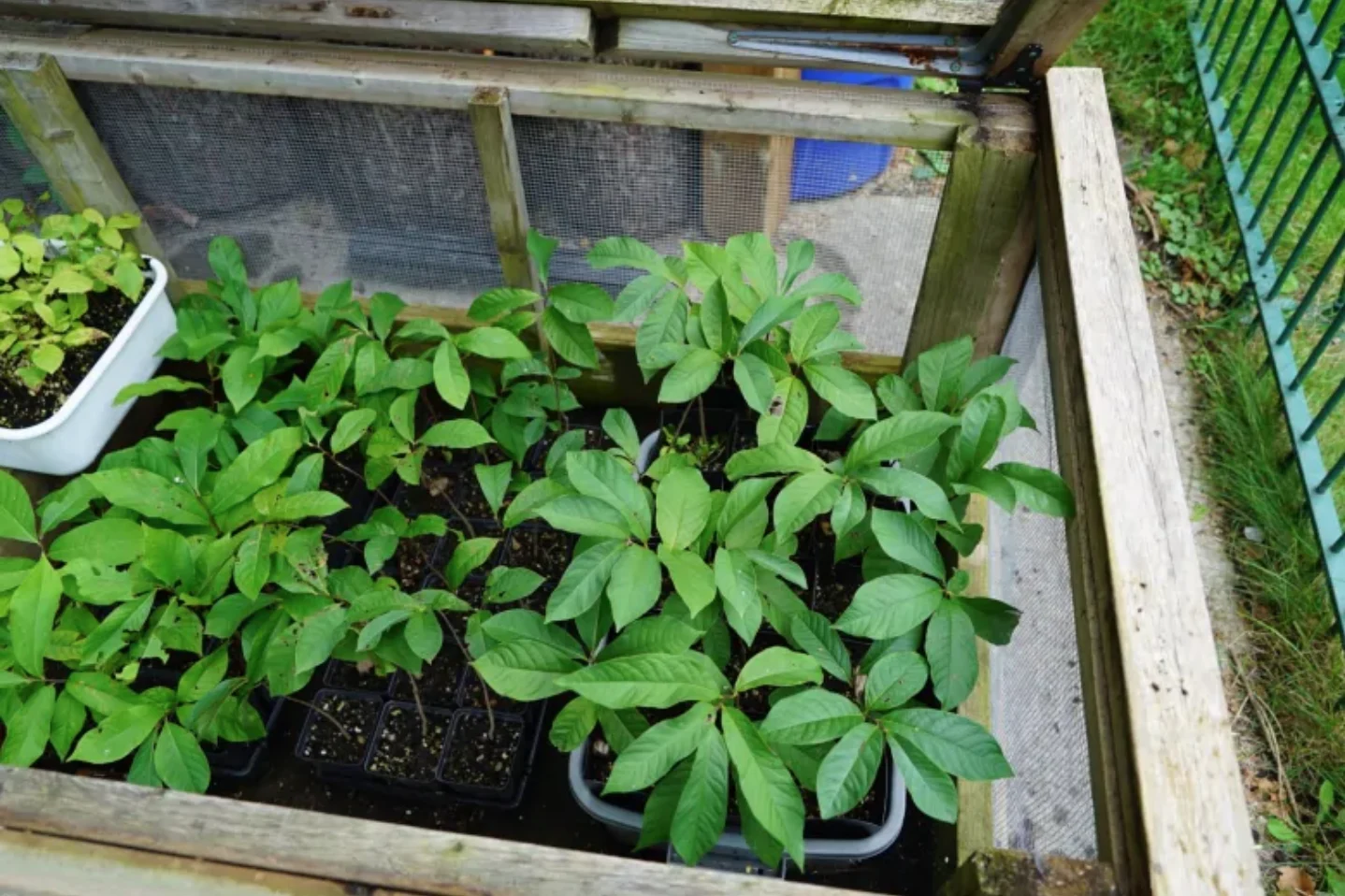
(Image: These are just a few of the 100 pawpaw seedlings ecologist Ben Porchuk is giving away with a little help from his neighbour Steve O'Neil. Courtesy: Colin Butler/CBC News)
"It's cultural repair," Porchuk said. "This is a really big piece of the puzzle that helps rebuild what was taken away from them."
Porchuk said while most of the 100 trees are spoken for, there's still a chance to get your hands on one for free.
All you have to do is write to Carolinian Canada (pawpaw@carolinian.org) with the story of your of your garden and why you want a pair of pawpaw trees.
Stops for the pawpaw parade:
Grand Bend
Oneida of the Thames
Sarnia
Chippewa of the Thames
Delaware-Muncie
London
Kettle and Stony Point
Hamilton
Niagara
Six Nations of the Grand
Toronto
Mississauga
Oakville
Burlington
Aamjiwnaang First Nation
Windsor
This article, written by Colin Butler, was originally published for CBC News.